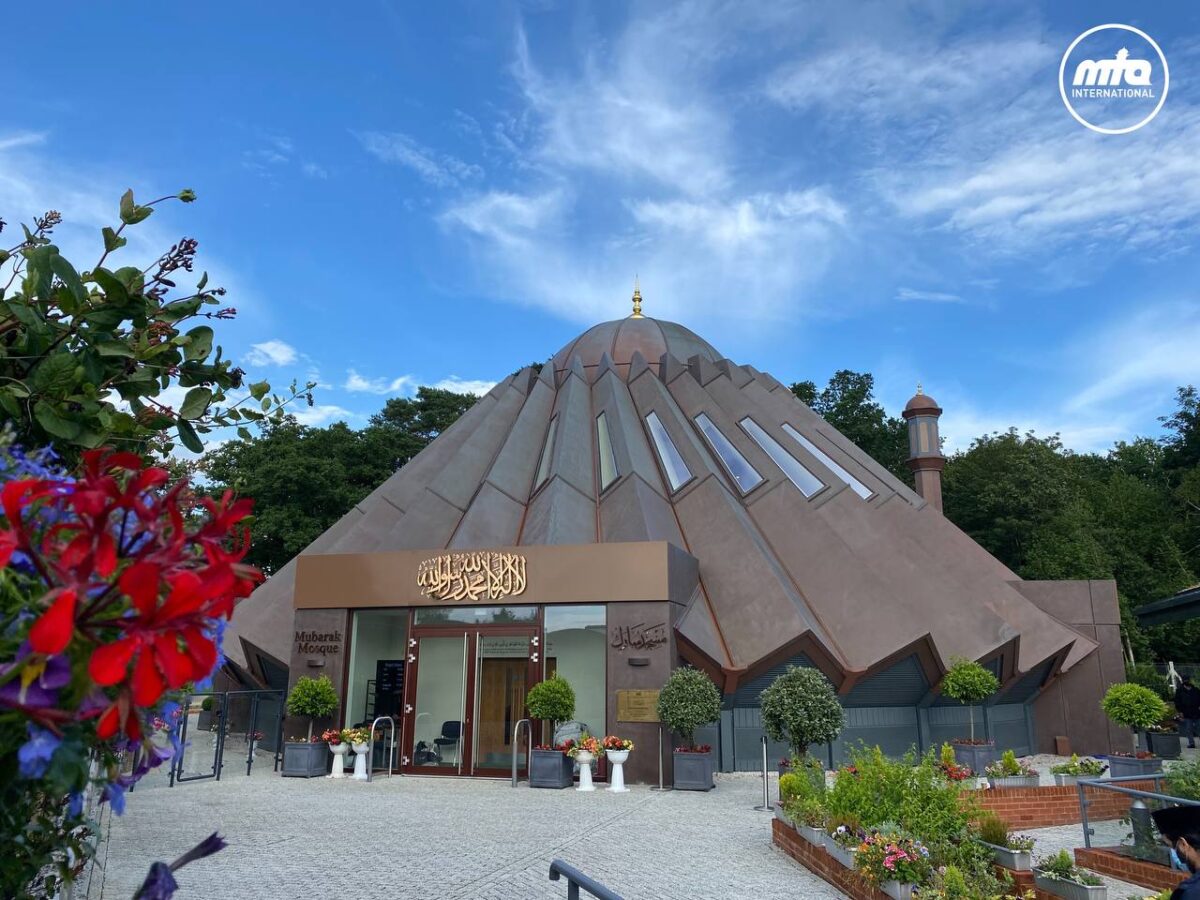
In the wake of recent events, particularly the ongoing crisis in Palestine, the disunity within the Muslim world has become more evident than ever. The lack of a cohesive response from Muslim countries and their leaders has left many feeling frustrated and disheartened. It is clear that there is a pressing need for a unifying force, and an increasing number of Muslims are turning to the idea of the establishment of a Khilafat as a solution to bridge the gaps that divide them.
The Muslim world has long grappled with internal divisions, fuelled by sectarianism and geopolitical differences, and now there is an urgent need for a leader – a Khalifa – who can unite Muslims on a global scale and spiritually revive them. There does exist such a leader; his name is Hazrat Mirza Masroor Ahmadaa, and he is the fifth Khalifa of the Ahmadiyya Muslim Community.
For decades, he has been advising Muslims that unity is the only way to free the Muslim world from the shackles of discord. He has been invited to congresses, conferences and parliaments all over the world and the following message is always echoed: the Muslim world, in fact, the whole world, must unite so that global peace can be established. Vested interests and agendas of nations must be set aside for a greater cause.
This said, however, merely recognising the Khalifa of the time is not enough; rather, it is incumbent on all believers to establish a strong relationship with him and remain firmly attached to this institution.
The Ahmadiyya Muslim Khilafat began after the demise of the Promised Messiah and Imam Mahdi of this age, Hazrat Mirza Ghulam Ahmadas in 1908. The first Khalifatul Masih, the caliph of the Messiah, to be divinely elected was Hazrat Hakim Maulvi Nuruddinra. Expounding on the importance of Khilafat, he likened the relationship of believers with the Imam to a dead body in the hands of one preparing it for burial:
“Your state in the hands of the Imam should be like a dead body in the hands of a ghassal [one who bathes the body for burial]. All your aims and wishes should be dead and you should attach yourselves to the Imam as carriages are attached to an engine. Then, see for yourselves whether you emerge out of darkness or not. […] Thus, be grateful for this blessing, as thankfulness increases the blessings.” (Khutbat-e-Nur, p. 131)
The second Khalifa, Hazrat Mirza Bashiruddin Mahmud Ahmadra, described Khilafat to be the rope of Allah; holding fast to this rope leads to progress, prosperity and honour:
“Be exceedingly mindful of the fact that Khilafat is Hablullah [the rope of Allah]. It is such a rope [of God] that holding fast to it alone will lead you to progress. The one who will let go of it will be destroyed.” (Nizam-e-Khilafat, Barakat awr Hamari Zimadarian, p. 77)
Amidst the rising tide of conflicts and crises in the Islamic world, the pressing question that emerges is: Who has the authority to identify and appoint a leader capable of steering the Muslim ummah towards harmony and peace? It is here that the profound words of Hazrat Mirza Nasir Ahmad, Khalifatul Masih IIIrh resonate deeply:
“Our belief is that it is Allah Himself who appoints the Khalifa. If this decision were left to people, they would choose as their Khalifa the one whom they consider the most superior. However, the Khalifa is chosen by Allah Himself, and there is no flaw in His choice. […] Then Allah lifts him up and places him in His lap, and to those who oppose him, He says, ‘Fight with Me if you have the strength to do so.’” (Al Fazl, 17 March 1967, p. 3)
Hence, our relationship with the Khalifa should be based on our relationship with Allah the Almighty. One’s love for Allah must grow stronger as one progresses in nearness to Khilafat. Explaining this matter, Hazrat Mirza Tahir Ahmadrh, the fourth Khalifa, said:
“The relationship of every Ahmadi with the Holy Prophet Muhammadsa and his Khulafa or the Promised Messiahas and his Khulafa, should be based on the relationship of Allah. If the foundation of their relationship is not built on the relationship of Allah, then this relationship is artificial, fake and meaningless. If the love of Allah gives rise to that relationship and as they grow in their love for Allah, the said relationship with the Holy Prophetsa [and others] also grows, then rest assured that such people are not in any kind of danger, neither in this world nor in the next. Those who possess this kind of relationship, as I have explained, will remain safe from every strife.” (Friday Sermon, 23 November 1990)
Thus, we must keep in mind the following words of the pledge that we took before Hazrat Amirul Momineen, Khalifatul Vaa on the occasion of the Khilafat Jubilee in 2008 and never forget our responsibility of building a strong bond with Khilafat:
“We solemnly affirm that we shall strive till our last breath for the safeguard and stability of the institution of Khilafat and shall continue to instruct our children and coming generations to form an everlasting bond with Khilafat and benefit from its blessings, so that Khilafat-e-Ahmadiyya continues safely till the Day of Resurrection.” (Al Fazl International, 25 July 2008)
In essence, Khilafat is an everlasting source of divine guidance and blessings. It is the soul of the Muslim world and the unbreakable bond that ensures progress, goodness, and security for every believer. The call is clear: remain attached to Khilafat, for in this attachment lies the key to emerging from darkness into divine light, and also the key to lasting Muslim unity.

